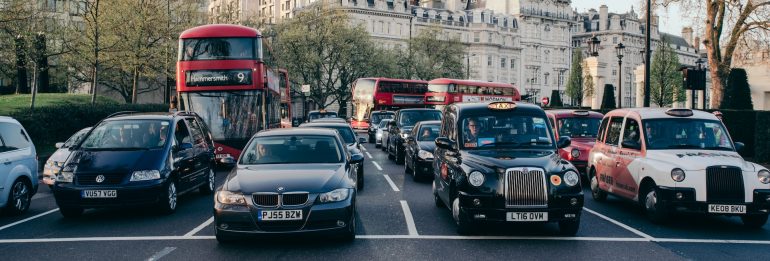In a move that could redefine urban mobility, the National Infrastructure Commission (NIC) has urged major English cities to consider introducing congestion charges. Such a measure, the NIC suggests, is essential to diminish car traffic and stimulate their economies.
Challenges of Urban Mobility
Major cities including Birmingham, Manchester, Bristol, and Leeds have been identified as focal points for this initiative. The Commission has underscored the urgent need for a £22bn investment in public transportation in these cities, pointing to congested roadways and insufficient public transport systems as significant roadblocks to their economic progression.

However, merely enhancing intra-city connectivity isn't the solution. To genuinely deter individuals from driving into metropolitan centres, the NIC believes implementing measures like congestion charging or workplace parking systems is imperative.
Learning from the Past
Implementing schemes that levy charges for driving into cities isn't a novel concept. London's broadened ultra-low emission zone stands as a testament. However, bringing such schemes to life, like the shelved clean air zone in Manchester, has been politically challenging.
Recognizing the sensitivity of the subject, the Commission's chair, Sir John Armitt, emphasized the necessity for straightforward advice. Highlighting the economic aspect, he remarked, "You don’t unlock economic growth by clogging up cities." While he championed the introduction of these charges, Armitt also stressed that the specifics should be the prerogative of city authorities. He further advocated for increased devolution, stating that local matters should ideally be locally decided.
Infrastructure at a Crossroads
Armitt also touched upon the significance of maintaining current infrastructure, identifying both Network Rail and National Highways as potential entities that might require increased funds, especially in light of the challenges posed by climate change. Drawing attention to the widespread issue of potholes, he commented on the unsatisfactory state of many country roads.

In the broader context of infrastructure, the government's recent decision to terminate the northern section of HS2 (High-Speed 2) was brought up as a point of contention. This termination, according to the NIC, has left a considerable void in the UK's rail strategy. Armitt lamented the fragmentation of what was once a coherent, long-term strategy into a mere assortment of projects. He expressed hope for the potential revival of the HS2 scheme to Manchester.
A Shift in Infrastructure Priorities?
While the HS2's £36bn replacement, the Network North, was initially hailed as a solution, it has been met with substantial scepticism. Post its announcement, several schemes under the plan were either scrapped or modified. Further analysis by the Campaign for Better Transport revealed that a significant portion of the Network North's budget would be directed towards road construction and maintenance, with a mere 20% unequivocally allocated to rail.
This reallocation drew criticism from Norman Baker, a spokesperson for the campaign, who argued that diverting funds from the HS2's northern leg to road construction was counterproductive and signalled a dwindling government commitment to achieving net-zero emissions.
Conclusion
The NIC's recommendations spotlight the pressing issues of urban mobility and infrastructure in the UK. As England's major cities continue to grow, the need for sustainable, efficient, and eco-friendly transportation becomes paramount. Whether the suggested congestion charges are the key to this conundrum remains to be seen, but one thing is clear – the decisions made today will shape the cities of tomorrow.
©GlobalCO2.uk





